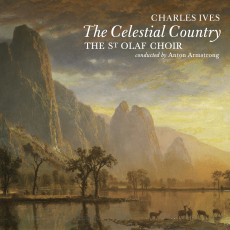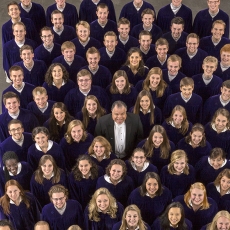St Olaf's Choir and Chamber Ensemble - Ives - Musical Pointers
Here is a valuable extension to our knowledge of Charles Ives (1874-1954) and a uniquely enjoyable one. These two choral works are of music which precedes and follows his period of wilder explorations.
The oratorio The Celestial Country (first performed April 1902; composed end of 19 C, when Ives was a church organist in New Jersey) is relatively conventional, but with a few hints of what was to come. He is beginning to react against heavy German romanticism. It is splendid, rousing stuff, varied with solos, a capella choruses and sections with organ and string quartet, ending with a chorale and finale To the eternal Father, Loudest anthems raise, with 'as much Wagner as Ives would ever display'.
Silence Acccompanied is a choral cycle compiled by Malcolm Bruno from songs and pieces for small chamber ensemble dating from (mostly) around 1920, when he published privately a collection of his songs and thought about organising them into sets or 'mini song-cycles'. This compilation for The St Olaf Choir includes Ives' last work Sunrise (1926); soon after completing it, he told his wife that he couldn't compose any more, "nothing went well - nothing sounded right". Subsequently during his remaining 28 years he only revised and completed earlier works. The sequence works very well and I found it moving; the orchestations here are from indications by Ives or implied from similar examples.
The St Olaf Choir (conductor Anton Armstrong) was founded 1912 and performs for capacity audiences (sometimes over 20,000) all over USA. It sounds as good as it looks! The soloists are drawn from the choir and only Dan Dressen is frankly over-parted - his demanding tenor aria ought to have been recorded again, if necessary by a professional. Baritone Michael Jorgenson is fine, as is mezzo Martha Hart in Silence Acccompanied. Recording is excellent, as is the presentation with full background information and all texts.

